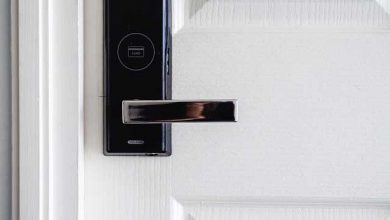The Pros and Cons of Smart Door Locks
KEY TAKEAWAYS
Smart technology for security is rapidly growing into a popular option for many. However, before you decide to go for any smart technology, you need to carefully weigh the pros against the cons. That goes for security systems too, such as smart door locks.
We consulted the top security experts who explained the advantages and disadvantages of smart door locks and listed all the most important ones here to help you decide.
Pro#1: Peace of Mind
Another advantage of having codes is that you can keep track of who comes in and out, so you’ll know if and when your child, for example, arrives home. You may also see if the door is locked or opened from your phone with many smart locks, allowing you to double-check its status from anywhere in the world.
Con#1: Potential for Hacking
While some smart locks eliminate the risk of lock picking, they may be vulnerable to hacker efforts to bypass the enter code that unlocks the door. On the bright side, if an unauthorized person gains access to the system, the system may be able to warn you (and the police).
Rameez Usmani, Tech and Security Expert at The Code Signing Store
Smart technology makes keeping your home safe that much easier, but it is important to weigh the pros and cons before installing any sort of security tech.
Pro#2: Going Keyless
One of the biggest advantages of having a smart door lock is the fact that they are keyless. With a regular lock and key, if you misplace your key, there is only so much you can do. Smart locks allow you to lock or unlock your door with ease by syncing up to an app on your smartphone.
The lack of keys also mitigates the risk of any burglar or thief gaining access to your home. By installing smart locks, you truly become the gatekeeper of your home. Having full control over access to your home is a great way to feel secure and safe at all times of the day.
Con#2: Cybersecurity
I’d have to say one major disadvantage of installing smart door locks is the reliance on network and WiFi. Although the locks offer fantastic physical security, there is still a chance that the locks could be hacked or tampered with through a cyberattack.
This is why it is so important to have a safe and secure WiFi connection in your home, especially if you are equipped with different kinds of smart technology. In this digital world, cybersecurity is becoming just as important as physical security for homeowners.
Kristen Bolig, Founder of SecurityNerd
Many office tenants are faced with an important decision when it comes to their business space: installing smart locks or keeping the traditional lock and key system. Smart lock technology is growing in popularity. It’s important to realize smart locks have smart lock benefits and smart lock risks that need to be considered before installing smart locks in your office space.
A smart lock is an electronic mechanism that replaces traditional locks and keys. Instead of having to turn the key in the exterior deadbolt, smart locks allow users to open their doors using either Bluetooth or Wi-Fi technology on their smartphones.
That means no more searching for misplaced keys! They’re operated by an app, which users can download to their smartphone. The smart lock is making its way into commercial properties everywhere. Rather than using standard locks or keys, smart locks are also popular with apartment renters and office tenants because of their convenience and potential cost savings.
As smart technology becomes more and more prevalent, smart locks are becoming an important part of the office environment. Smart locks make access to your office easier but can also be an inconvenience if you lose your smartphone or forget your smart lock code. Here is some information on smart locks and their potential benefits (and disadvantages) in an office setting.
Some benefits for smart locks include:
Pro#3: Easy Access
Easy access to the office when you want it and easy exit during emergencies or when leaving for the day. The smart lock can be programmed to open automatically for specific times of the day or under certain circumstances, such as when the office is unoccupied.
Pro#4: Can Assign Different Permissions
A smart lock can be programmed with a digital key to allow access for guests and outside workers, and it can assign different permissions for each smartphone used to gain entry into the building.
Pro#5: No Risk of Losing The Key
You no longer have to worry about losing your key or carrying keys in your pocket; smart locks can be accessed remotely from smartphones or tablets.
Some disadvantages to smart locks include:
Con#3: Risk of Losing Access if Your Smartphone is Lost
You may lose access to your smartphone and will need to contact the smart lock company for help. It would be inconvenient if you lost your smartphone and couldn’t get into your office.
Con#4: Could be complicated Implementing the System In Offices
If smart locks are installed on all the doors to your office, it may take time for everyone in your office to get their smart lock code or use their smartphone if someone else typically opens the door for them. It might be frustrating for some workers to have an additional task added to their day.
Cons#5: Losing Access if Smartphone Runs out of Battery or Gets Damaged
Your smartphone might run out of battery, break, or become damaged. If this happens, you will need to contact a smart lock company for a replacement smartphone and a new smart lock code.
This type of technology continues to grow in popularity, but smart locks are not for everyone. Regardless of whether or not smart locks are right for you, it is important to realize that there are many smart lock benefits and smart lock risks that need to be considered before making a decision on installing smart vs. traditional locks.
Overall, smart locks can be an ideal solution if you need to replace traditional key or deadbolt systems in your office space. They offer convenience while still providing security, and smart locks with cloud-based access provide added peace of mind.
Rob Chamberlin, President Security 101®
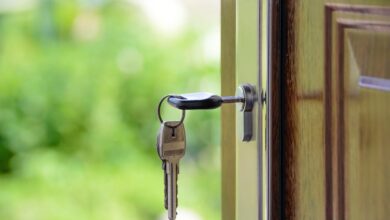
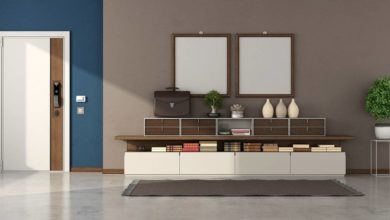
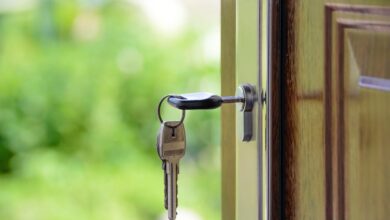
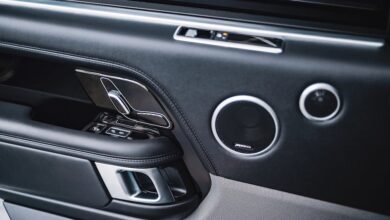
![Photo of Best Smart Door Lock With Camera For Your Home [2023]](https://www.securityforward.com/wp-content/uploads/2023/02/smart-door-lock-with-camera-390x220.jpg)
